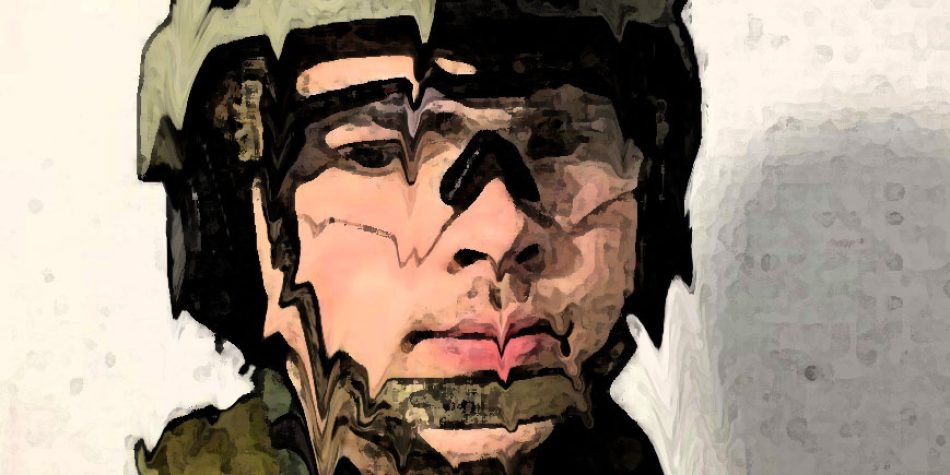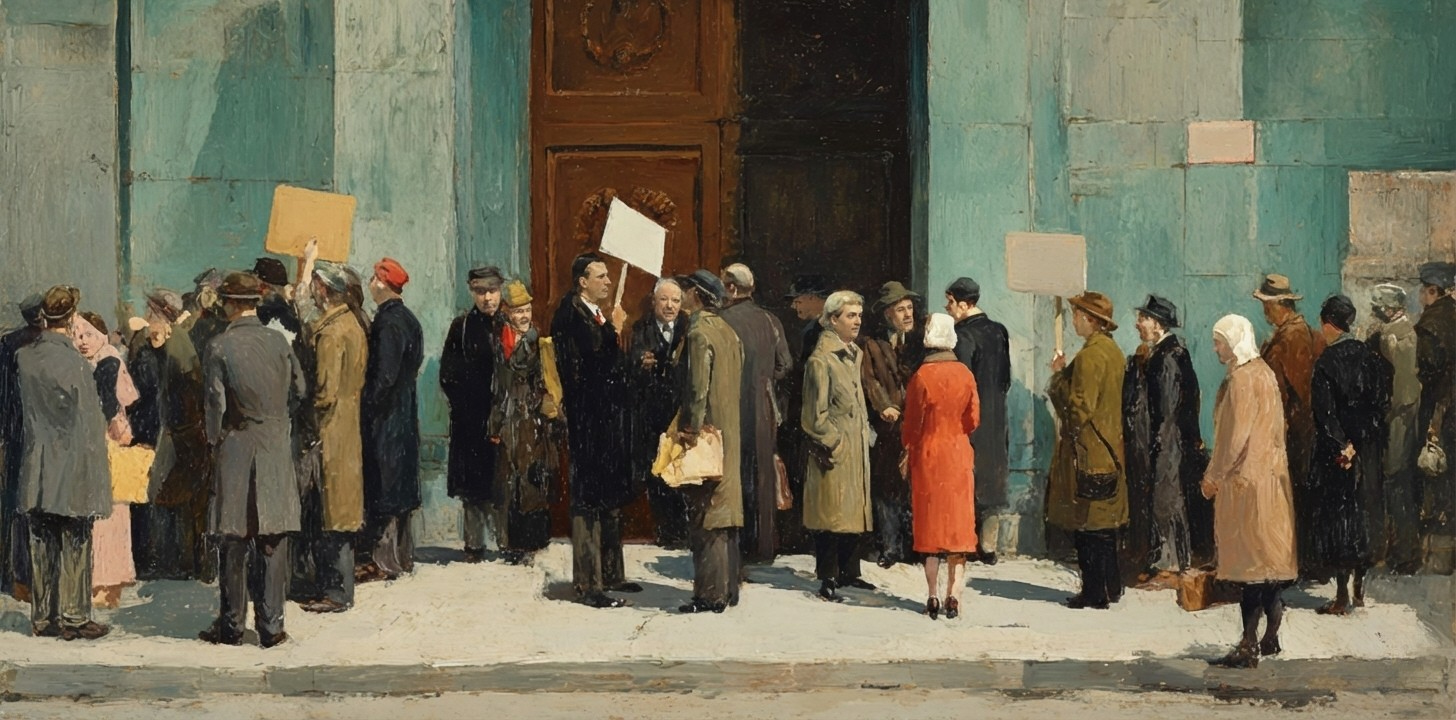What does it matter that Payton Gendron was lured into an online house of horrors? Gendron is the young man who killed 10 people at a grocery store in an African American neighborhood in Buffalo. He deliberately targeted both the neighborhood and the store in order to maximize the number of Blacks he could kill. Knowing this, why should we care that in the months before the shooting, he was systematically drawn ever deeper into darkness, groomed to believe he is a savior to his race and that sainthood awaited him just beyond a curtain of righteous violence?
Many people will tell you that Gendron’s recent and remote history doesn’t matter at all. That is certainly the view of Richard Vatz and Jeffrey Schaler, for example, who took to the pages of the Baltimore Sun to call for the young man’s execution. Though trained in the workings of the mind, the two were singularly uninterested in Gendron’s. Instead, they denounced him as a “monster” and “evil personified,” epithets apparently intended to dissuade us from wondering how a child born with promise could become filled with hate. “It doesn’t matter why he did it,” they assure us. What matters is that “[h]e did it; he must pay for his acts.”
But I do not mean to single them out; I’m sure many others feel the same way. Under ordinary circumstances, most of us have little trouble grasping the difference between an explanation and an excuse. One accounts for while the other absolves. Yet when it comes to egregious wrongs, the distinction can slip through our fingers. We may resist any attempt to understand the wrong, turning our hearts and minds against the effort as though it were a surreptitious ploy to escape blame. This determinedly closed habit of mind is a veritable calling card of our unforgiving society and was much on display after September 11. Alan Dershowitz, for instance, argued that it was a dangerous mistake “to try to understand [terrorism] or eliminate its alleged root causes.” Like others, he seems to believe something bad will happen if we judge a wrong and inquire why it happened at the same time, as though the latter detracts from the former.
Yet contrary to the insistence of Professors Vatz and Schaler, Gendron’s history obviously does matter. How else to explain the urgent calls to regulate online content? If we believed online radicalization was irrelevant—that it was no more consequential than online cat videos—there would be no clamor to control it. There would be no suggestion that online platforms be liable for the hatred they spew and the damage they cause; there would be no call to prosecute hate-mongers who use the anonymity of online platforms to seduce others into violence; there would be no insistence that these platforms not be allowed to regulate themselves. Online radicalization matters.
This is why we fault Donald Trump for lying to his followers that the 2020 election was “stolen” and inflaming them to storm the U.S. Capitol to “stop the steal.” It is not because his manipulations relieve the insurrectionists of legal responsibility; his lies and exhortations do not create a legal excuse. Instead, we extend blame to include Trump because we cannot otherwise make sense of what happened. Hundreds of people did not just appear at the Capitol on January 6, and I have never heard anyone argue that the insurrection would have occurred were it not for Trump’s manipulations. His behavior matters not because it renders the insurrectionists blameless but because they are not solely to blame, and to fix all the blame on them denies a self-evident reality. As the philosopher Judith Butler wrote of a different group of terrorists, “Those who commit acts of violence are surely responsible for them; they are not dupes or mechanisms of an impersonal social force, but agents with responsibility. On the other hand, these individuals are formed, and we would be making a mistake if we reduced their actions to purely self-generated acts of will or symptoms of individual pathology or ‘evil.’”
Another way to grasp the import of Gendron’s radicalization is to imagine a slightly different situation. Suppose someone manipulated another into taking their own life. Suppose, for example, they used “psychological pressure” or “actual or ostensible religious, political, social, philosophical or other principles” to convince a person that they had to end it all. There is no universe in which we would think the manipulator’s behavior “doesn’t matter,” which helps explain why nearly every state in the country makes it a crime to induce another to commit suicide. In fact, the language I have quoted here comes from the Illinois statute, which seems especially aimed at criminalizing precisely the sort of coercive pressure exerted by online radicalizers who act in the ostensible service of “religious, political, social, philosophical, or other principles.”
And though we might disagree about whether any given manipulator should be convicted—a judgment that would depend on the fit between the language of the statute and the facts of the case—we would have no trouble describing the person who committed suicide as a victim. That is certainly how the law describes them. And frankly, what other word makes sense? To be sure, we might also be angry at the person who dies by suicide for the pain they cause among friends and family members left behind, but surely part of our anger and hurt—and maybe the larger part—would be directed at the person or people who set events in motion.
If we believe someone is a victim when they are manipulated to act against themselves, why should it be different if they are manipulated to act against others, especially if the expectation is that they will also be killed? To put the question somewhat differently, where is it written that a person cannot be a victim and a perpetrator at the same time? Admittedly, we are conditioned to recoil from this framing. We mentally resist the suggestion that Payton Gendron could (also) be a victim. The word sticks in our throats when we see the great pain he caused, a purposeful and pointless misery that carves an emptiness that time will never fill. We reserve victim for the innocent, for the people he slaughtered and the peace he shattered. Payton Gendron is emphatically not innocent.
But what he did to others does not diminish what was done to him.
Finding Belonging in Rage
After Gendron’s rampage, New York Governor Kathy Hochul directed State Attorney General Letitia James to investigate the role of online platforms in his radicalization. In the report that followed, James described how Gendron “made extensive use of online platforms to immerse himself in the rank hatred of the online white supremacist milieu, to plan his attack in great detail, and to livestream his shooting. He documented his actions for posterity, relying on the power of the internet and online platforms to perpetuate his disturbing deeds. Indeed, within hours of the shooting, graphic videos and images of his attack were widely disseminated across all corners of the internet.” Radicalizers appeal to the fundamental human need to belong.
Gendron answered the call. Like many before him, he was seduced by the “great replacement” theory, the hoary but elastic idea that Jews (and in some versions, Muslims) are conspiring to replace white, Christian civilization, sometimes by encouraging immigration from undesirables, other times by out-reproducing whites. The theory is already responsible for a mountain of misery, including the terrorist attack in Christchurch that launched Gendron on his journey, along with assaults on Jews, Latinos, and Blacks. On 4chan, carnage in defense of whiteness is celebrated, and attackers become saints, which draws ever more faithful to the fight. And whenever Gendron wavered, it was 4chan that brought him back. “Every time I think maybe I shouldn’t commit to an attack, I spend 5 min [on 4chan], then my motivation returns.”
Though it adds important detail about Gendron’s trajectory from bored teenager to race warrior, nothing in James’ report is new. We have known for years that white supremacist platforms systematically target, groom, and radicalize vulnerable people like Gendron, many of them young and socially isolated. And they’ve gotten quite good at it, luring the Gendrons of the world by supplying a sense of community. Radicalizers appeal to the fundamental human need to belong and live a meaningful life. No two seductions into radicalism are exactly alike, but they are all seductions. Radicalizers are keenly attuned to the language of unmet needs—of loneliness, abandonment, emptiness, and despair—and respond with affirmation, warmth, camaraderie, and purpose. Step by step, in the online echo chamber, they surround the vulnerable with new messages and ease them from one life to another: new values; new existential threats; a new us, a new them. Imperceptibly at first but with gathering intensity, a new life tightens its grip as the old loses its hold.
For some recruits, in rapturous thrall to a new identity, fealty comes unforced. Beliefs that once would have seemed bizarre are now self-evident; behavior that once would have been unthinkable is now heroic. In his rambling, 180-page manifesto, Gendron included an image from a video created by Daniel Harris, a 19-year-old white supremacist in England whose racist videos warned that whiteness would perish from a “planned genocide” unless warriors rallied to its defense. Two months before the shooting, Gendron left a comment under one of Harris’ videos: “You are not alone my friend :).” Harris is now serving a 12-year sentence in England for terrorism.
From what we know, it appears Gendron was the ideal target for this online radicalization. Associates describe him as quiet and studious but also isolated and lonely. Matthew Cassado, a classmate and friend, said the other students didn’t want to hang out with Gendron because “they didn’t want to be known as friends with a kid who was socially awkward and nerdy.” Even Casado palled around with him only because Gendron’s mother called Casado’s mother with a parent’s saddest plea: Please ask Matthew to call Payton because he has no friends and needs to talk. Gendron was thus denied what none of us can live without—the feeling that he belonged. Gendron’s neighbors did not see the radicalism building within him as he was drawn to a new identity—one person described him as “evasive”—but in accelerating isolation and desperation, Gendron seems to have turned to the only place that welcomed him wholeheartedly and gave him the sense of belonging and purpose that all of us need—the fetid swamps of online persecution and rage.
No one suggests that Gendron would have committed his crime were it not for the manipulations of others, who set his crime in motion and share in his blame. Gendron’s behavior is intelligible only as a product of—and a participant in—the ever-expanding universe of online white supremacist rage. As much as any wrongdoer, he is part of the culture around him. A culture that thrives on rage. Where demonization is a first impulse rather than a last resort. Where online hatred is fueled by larger patterns of demographic decline, anomie, and isolation. Where political institutions cannot meet global challenges, which opens space for fear-mongers and conspiracists. We want to believe that online spaces like 4chan exist in a parallel universe that never touches our own. But many of the views Gendron consumed online are, as others have observed, alarmingly close to mainstream Republican orthodoxy. Meanwhile, the outrage machine that fires a white-hot, Manichean rage in much of society is now completely bi-partisan.
No, Payton Gendron is not innocent. He is something much more. He is a human being. He is complex. Damaged. Broken. He is a perpetrator responsible for his actions. He is a victim, manipulated into believing a lie. The struggle to comprehend all this—to grasp fully the tangled complexity of Gendron’s innocence and his guilt, of his humanity—is not a subterranean ploy to excuse him. It is something far more ambitious and vital. It is an effort to understand the truth, which I use as James Baldwin did more than half a century ago. Truth implies “a devotion to the human being. … [A human being] is not, after all, merely a member of a Society or a Group or a deplorable conundrum to be explained by Science. He is … something more than that, something resolutely indefinable, unpredictable.” He is a product of modern society—our society.
In the place of this compassionate but complex truth, many people substitute the cheap, dime-store image of Gendron as a monster, which allows them to bury themselves beneath the covers and shut their minds to their greatest fear: Payton Gendron is us. He is a product of modern society—our society. But their fear is their weakness, and Baldwin had it right: Gendron’s complexity “is nothing more than the disquieting complexity of ourselves.” “In overlooking, denying, evading his complexity, we are diminished, and we perish; only within this web of ambiguity, paradox, this hunger, danger, darkness can we find at once ourselves and the power that will free us from ourselves.”
A fear of critical inquiry and the truth it might reveal is hardly new; it was already old when the Catholic Church denounced Galileo Galilee for the heretical suggestion that the Earth moved around the sun. But we are not in the 17th century, and today the truth is a heresy that strikes at a different dogma. Today, the great heresy is the terrifying idea that, in all the ways that matter, we are the same.
















